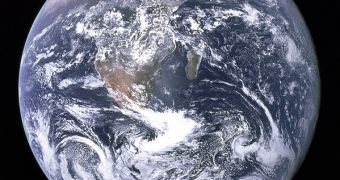As a consequence of the fact that the Earth is currently getting warmer, the interactions between the biosystems of our planet are starting to deteriorate and to shift, a fact that could have negative, long-lasting implications on all life here. So now, researchers find themselves in a position where they have to start everything all over again, in hopes of finding the changes that other scientists predict. In other words, they have to now look into the exact relations between Earth's geosphere, atmosphere, hydrosphere and biosphere, in order to get a glimpse at what lies ahead.
For years, researchers have told everyone who would listen that global warming is real and that action needs to be taken swiftly in order to stop it. But unfortunately, there are, even to this day, those who say that climate change is a “fabricated” concept, and that nothing is actually happening. It would seem, however, that everyone else, ranging from the UN and national authorities in nearly all states of the world to common folks and the international scientific community, begs to differ.
National Science Foundation (NSF) researchers James Collins, who is an assistant director for biological sciences, and Tim Killeen, an assistant director for geosciences, say that the 21st century will be of paramount importance for the way in which we choose to govern our planet. They add that the four spheres making up our world are not as resilient as they may seem. Indeed, the atmosphere, for example, can hold back powerful radiation from the Sun, but it cannot take hits from within as well.
“The goal is to increase our understanding of how biological systems respond to changing physical and chemical conditions, and how biological systems influence the physical and chemical characteristics of soils and sediments, air and water,” Collins explains. He adds that the Earth is more than able to hold a large number of people, but that we also need to make sure that the proper balance between all elements that make up our world is safe.
And global warming is the perfect example of what we should not do, right next to pollution. Once people realize this, we could really set the basis for a communion with nature. Until then, unfortunately, our relationship with the Earth is one-way alone, in which we take everything we want and give less than nothing back.

 14 DAY TRIAL //
14 DAY TRIAL //